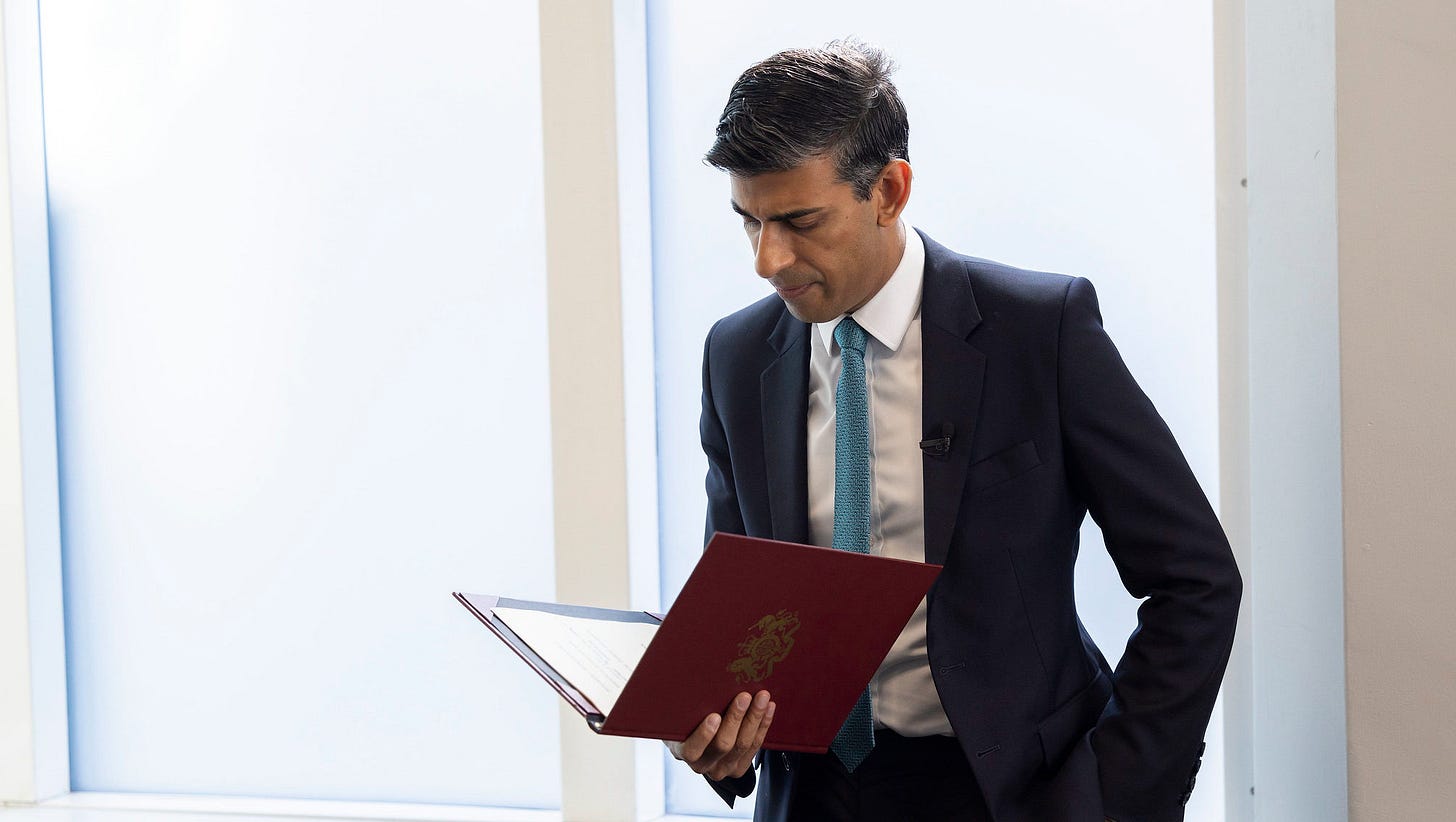Where does all the money go?
Rishi Sunak clearly shouldn’t be allowed to go on holiday. He’s come back from his summer break spewing out a whole load of announcements and briefings: scrapping environmental targets, probably delaying HS2, proposing a British baccalaureate to replace A-levels, a £10 fine for missing a GP appointment that would likely cost more to administer than it would raise, and so on.
There’s always a temptation to try and identify the clever strategy behind the apparent incoherence. There isn’t one. This is what happens when a Prime Minister tries to take every decision themselves without proper advice, or time to do any of them justice, while also going to G20 meetings and organising an AI summit. You can get away with centralising decision-making as Chancellor because you have more space and less to focus on. But not as Prime Minister. This isn’t three dimensional chess, it’s a bad hand of solitaire.
The campaign and comms team around the Prime Minister have, of course, done their best to give all this the appearance of a cunning plan. They’ve briefed that saving money on things like HS2 will create space for tax cuts and pointed out various new dividing lines with Labour, as if creating a point of disagreement was itself an achievement. It’s all, though, rather forlorn and desperate.
Indeed framing this list of random announcements as “long-term decisions for a brighter future” (the Tory conference slogan) is testing the credulity of even the friendliest client journalists. It seems unlikely to help the Tories increasingly desperate political position. No doubt they will cough up some tax cuts at some point, with inheritance tax the current favourite. But it’s hard to see the electorate feeling confident about a government so obviously flailing around, even if they’re not following the details.
Of course, one reason why Sunak has ended up such an odd mix of policies is the underlying financial position. Needing to stick within fiscal rules means no policy announcements that cost any money, so the focus is on scrapping stuff or tangential low-priority ideas like new school qualifications. As discussed before Labour have the same (self-imposed) problem, and will continue to do so after any election victory. Every other domestic policy issue is dwarfed by the “2025 spending review problem”, and how on earth to make the numbers add up, given they are currently based on unrealistic cuts to spending across multiple departments.
Given that, and given I’m going to be writing about it a lot over the next 12-18 months, I thought it would be useful to do a series of posts setting out the basics of how the public finances work and the key issues that flow from that. This information is scattered across multiple sources and often expressed using impenetrable jargon, so I’m going to do my best to keep it simple, with further reading at the end if you want to get into more detail.
I’m going to start with a breakdown of what the government spends all our money on, and what that means for the next spending review. In post two I’m going to do the same on the income side and breakdown tax (and other revenue). In post three I’m going to pull it altogether into a menu of options for an incoming Chancellor.
Keep reading with a 7-day free trial
Subscribe to Comment is Freed to keep reading this post and get 7 days of free access to the full post archives.


